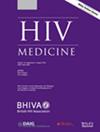mRNA vaccines against HIV: Hopes and challenges
Abstract
Background
Since the introduction of the first licensed mRNA-based vaccines against COVID-19, there has been significant interest in leveraging this technology for other vaccines. An unprecedented surge of mRNA vaccines has emerged in preclinical, clinical, and various research phases since 2020. The rapid development of mRNA formulations, delivery methods, and manufacturing processes has made this trend foreseeable. There is an urgent demand for effective and easily transportable vaccines in regions where the virus is prevalent, and mRNA technology shows promise in addressing this need.
Methodology
The data was retrieved from various databases, including Google Scholar, PubMed, Science Direct, ClinicalTrials.gov, and government websites. The following terms were used in the search strategies: HIV, vaccines, mRNA vaccines, clinical trials, and preclinical trials. A total of 35 articles were identified and subsequently screened for data regarding mRNA vaccines for HIV.
Results
mRNA vaccines are an effective solution for HIV treatment, as demonstrated by various research studies referenced in the article.
Conclusion
This review evaluates the current state of HIV-1 mRNA vaccine development, clarifies various targeting strategies, highlights recent research findings, and provides insights into the challenges and potential solutions associated with these issues. In this review, we have explored mRNA vaccines, focusing on their functional structure, design, manufacturing, and distribution methodologies.

 求助内容:
求助内容: 应助结果提醒方式:
应助结果提醒方式:


